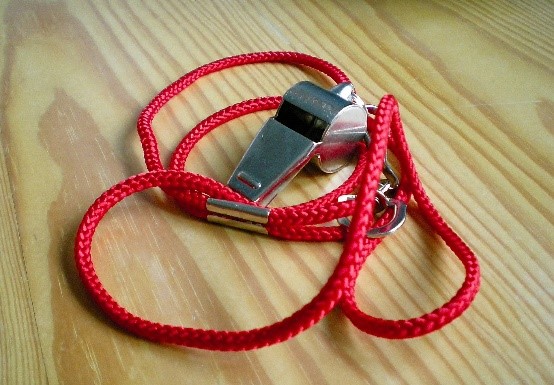- Hyderally & Associates P.C | Employment Lawyers NJ, NY
- (973) 509-8500
- tyh@employmentlit.com
Judge’s Baffling Jury Instruction Wins Whistleblower a New Trial
Is My Employer’s Arbitration Agreement Valid?
December 29, 2020Food Workers in NY – You have Rights!!!!
January 11, 2021By Francine Foner, Esq., and Ty Hyderally, Esq.
When can a judge’s faulty jury instruction result in a new trial? That is what the Appellate Division recently considered when it reviewed a bewildering jury instruction given by the judge overseeing Parsippany-Troy Hills Police Captain James Carifi’s whistleblowing trial. Parsippany-Troy Hills Police v. Township of Parsippany-Troy Hills, 2020 N.J. Super. Unpub. LEXIS 2391, 2020 WL 7330069. In an unpublished opinion, the Appellate Division concluded that the trial judge gave the jury such a confusing instruction on a pivotal question of the Township’s vicarious liability, that a new trial was warranted against the Township.

Captain Carifi alleged that the Township and former Police Chief Michael Peckerman retaliated against him for Carifi reporting what he believed to be illegal activities occurring in the Parsippany-Troy Hills Police Department. The unlawful conduct Captain Carifi reported included “double dipping” payroll practices, an employee being paid while on medical leave, a number of mysteriously missing laptop computers, and his strong disagreement to the hiring of a crossing guard who was related to the Township’s council president and had a previous larceny conviction. Captain Carifi asserted that his supervisors retaliated against him for his whistleblowing activities in in violation of the New Jersey Conscientious Employee Protection Act, N.J.S.A. 34:19-1 to – 14. The retaliatory actions included: job transfers, exclusion from a training program, removal from work detail which resulted in a loss of overtime, an investigation against him, delays in providing him with a division commander’s vehicle, and failure to timely call for a deputy chief’s civil service examination.
During the jury’s deliberations, the jury asked the trial judge “Who/what does defendant, Township of Parsippany-Troy Hills include?” The trial judge responded: “There are two defendants in this case, former-Chief Michael Peckerman, personally, and the Township of Parsippany-Troy Hills, which is the municipality of Parsippany-Troy Hills. Okay. That’s the answer to your question.” The Appellate Division found that this response was entirely unhelpful, and only further confused the jury. Rather, the Appellate Division observed that an appropriate response would have “informed the jury that, in this case, the Township includes the supervisory employees within the Parsippany Police Department; from the trial testimony, the supervisory employees would include the police chief, the deputy chief, and the four captains underneath them.” Id. at *24. In evaluating whether this instruction rose to the level of reversible error, the Appellate Division observed that “[g]enerally, we will not reverse ‘if an erroneous jury instruction was incapable of producing an unjust result or prejudicing substantial rights.’ Ibid. (quoting Mandal v. Port Auth. of N.Y. & N.J., 430 N.J. Super. 287, 296, 64 A.3d 239 (App. Div. 2013)). However, ‘erroneous instructions on material points are presumed to be reversible error.’” Id. at *23, (quoting McClelland v. Tucker, 273 N.J. Super. 410, 417, 642 A.2d 409 (App. Div. 1994)).
The Appellate Division found that the trial judge’s less than helpful response to the material question of whose retaliatory actions could impose liability upon the Township was just such an erroneous instruction constituting reversible error. As the Court explained, “[r]ather than answer the question informatively, the judge did nothing to clear the confusion reflected in the jury’s question; instead, by simply telling the jury, ‘There are two defendants in this case,’ and then naming them, the judge’s response likely added to the jury’s confusion.” Id. The Appellate Division further determined that the trial judge’s failure to properly instruct the jury on this issue was critical to the jury’s finding that the Township did not engage in retaliation against Captain Carifi because of his whistleblowing activities. As the court reasoned, “[w]e are convincedthe judge’s response had capacity to mislead the jury and was clearly capable of leading the jury to an unjust result. Based upon our review of the trial record, if properly instructed, a reasonable jury could have found that upper-level supervisory personnel within the PD retaliated against defendant for engaging in protected whistleblower activities.” Id. at *24-25.
Therefore, the Appellate Division held that the judge’s inadequate response to the jury’s question inquiring “who or what does [the Township] include,” resulted in harmful error that warranted a new trial against the Township. However, since the jury had only inquired about the Township, the Appellate Division did not reverse the jury’s verdict in favor of former Chief Peckerman. Captain Carifi thus has another opportunity to prove his case against the Township.
En nuestra firma hablamos español. This blog is for informational purposes only. It does not constitute legal advice, and may not reasonably be relied upon as such. If you face a legal issue, you should consult a qualified attorney for independent legal advice with regard to your particular set of facts. This blog may constitute attorney advertising. This blog is not intended to communicate with anyone in a state or other jurisdiction where such a blog may fail to comply with all laws and ethical rules of that state of jurisdiction.

